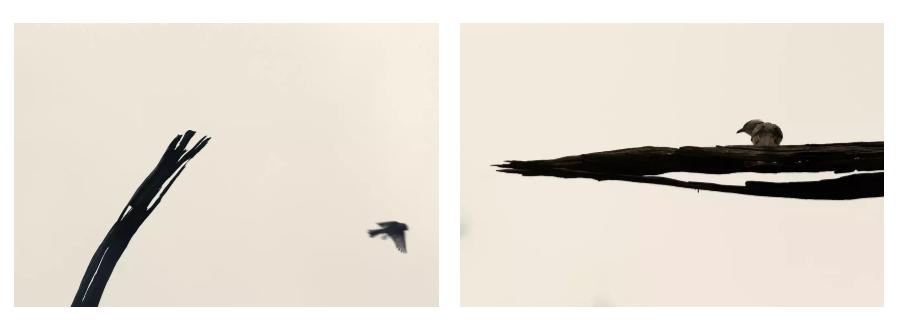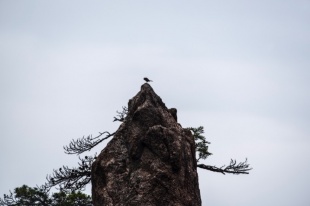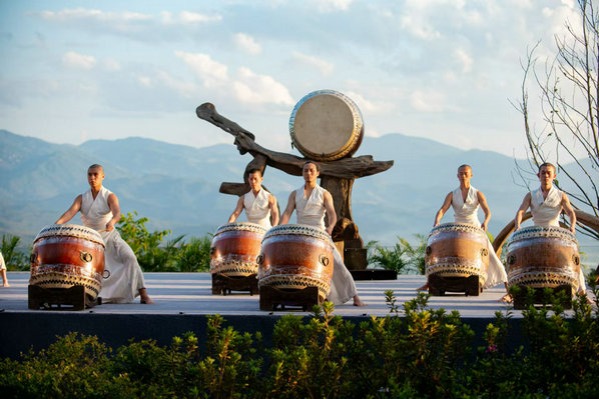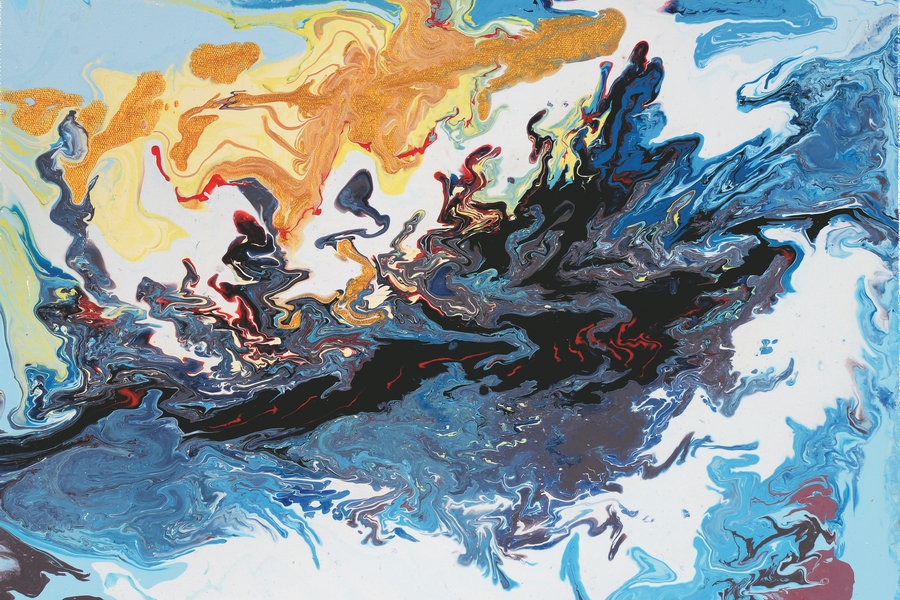'Chance favors the prepared mind': the landscape photographs of Zeng Yicheng


This is evident also in the "Spontaneity" suite of more intimate, close-up landscapes. These sparse, reductive images isolate fragments of the natural world — a few blades of grass, a single branch of a tree. Often these incorporate a visiting bird, for whose arrival Zeng had to wait patiently, indicative of the care and planning that go into Zeng's creative process. However, this does not contradict his capacity for spontaneity, no more than the traditional ink-brush painter's exacting preparation undermines the immediacy of the gestural act that distills and manifests the mental image. As the photographer and theorist Richard Kirstel said, paraphrasing Edgar Allan Poe, "Only the supremely rational can be truly spontaneous; all else is mere impulsivity."
In these projects Zeng also exercises an involvement in his craft comparable to that of his antecedents who worked with ink on paper. This involves not just the act of seeing and the numerous decisions that go into the making of the interpretive negative, but then the actualization of that image's potential in the interpretive print of that negative. Taking this several steps further, Zeng frequently contextualizes that print by mounting it on carefully selected rice paper, adding calligraphed text to it, and otherwise emphasizing its significance as a physical object while using those aspects of the finished works to evoke the artistic lineage from which they spring.




































